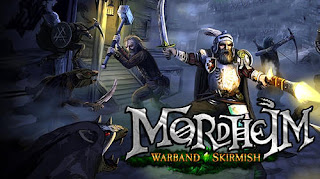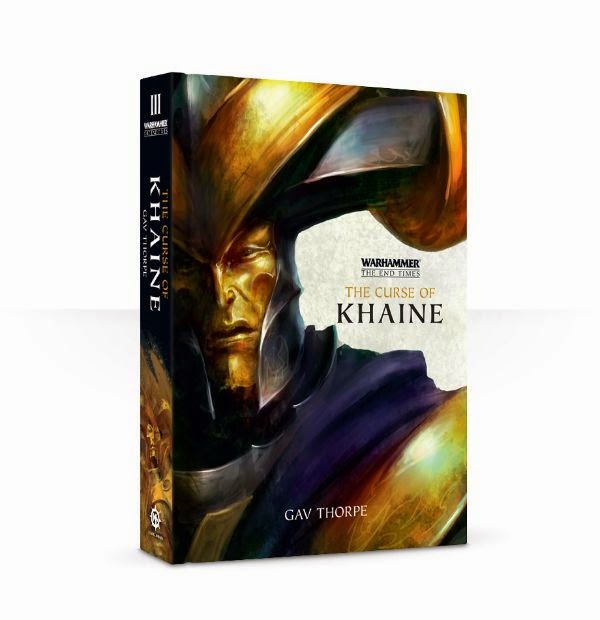Xathrodox86 reviews: Warhammer Fantasy Roleplay 4th edition, part 3: characteristics, skills, talents and advancements
Now we're getting to it. It's time to take a look at the core rules concerning skills, talents and characteristics, as well as their advancements.
On a first glance the 4th edition looks very similar to the venerable 2nd. But wait! There are a few changes. Agility has been divided into three, separate parts, which are Agility, Dexterity and Inititative. It's a very cool concept, as each of these is used for different tests. Dexterity is utilised for complex manual work, while Agility and Initiative will be used more often than not during combat. In my opinion this is a very welcome change and adds quite a lot to the game itself, as it really distinguishes a martial character from, let's say, an artisan of any kind. Nice job C7.
 |
| Now the party can be really varied and full of unique characters! |
Attributes and their developement has also been changed. In essence it now costs a lot more points to level your characters, as you always go from level 0, no matter how well did you managed to roll for the attribute in question. I think that this will really help with the power creep and munchkining, even if it means that the 4th edition is actually tailored for longer games. Nice! I also like how you can develop attributes, which haven't been "bought". It is possible, but it will be much more expensive. In 2nd edition it was a big problem for many characters, being unable to buy, for example, Dodge Blow during a combat-heavy campaign. I still remember arguing with my players about that particular case, to the point when I've decided to house rule that this skill will actually be considered a basic one. In the 4th edition there are no such problems. You'll just need to pay more to learn something that's outisde your area of expertise.
Talents and skills have also been vastly changed. Now there's a limit to how many times we can buy certain talents, depending on the first digit of the characteristic to which it is assigned. Skills are again divided into basic and advanced ones, although now you can also buy those, from beyond your "specialistaion", for double the points. In game terms, they work similarly to the 2nd edition ones. For example, if you don't have an advanced skill paid for in XP, you can't test it. Easy as that and really intuitive.
Cubicle 7 made some changes to the health system. Now it's determined, based on Will Power, Toughness and Strength characteristics. No more random rolling for your starting HP! It adds a bit of math to the game, but all in all, I think that's a nice change to the system.
Player and party ambitions are a completely new system, developed by Cubicle 7 for the 4th edition. In essence these are the driving force behind each character's actions, as well as those of a whole party. Short-term ambitions are chosen for completion during a couple of sessions and are usually mundane and down-to-earth tasks. Long term ones are trickier, often encompassing a longer period of time as well as being much grander in scale. Some of these can (and should) be kept secret between players, to add to the fun. Party ambitions are almost always long term ones, and can be quite epic in their scope, as well as execution. All in all it's a very nice, new system, which brings a lot of potential changes to the table and can even result in some tasty, inter-party conflicts and clashes. In the Old World, these kind of things do fit rather well, in my opinion.
Finally there are two new additions to the game - Resolve and Resilence. The first one determines our characters' determination to succeed, the inner strength that forces us to move on, no matter the odds and circumstances. The second one can be used similarly to Fate, but against things which would not normally have killed us. Other than these two, new additions to the game, the good, old Fate and Fortune make a welcomed return to the game. It's good to have them back, once again.
In general, the characters develop much slower in the 4th edition. The hefty price of each advancements, coupled with rather low ammount of XP, granted after each session, means that the games in this edition should take longer to finish. I like this approach a lot, as it really helps with building a sense of advancement, learning and exploration of the Old World (and beyond, hopefully). I don't like rushing things in my campaigns and scenarions, and while I love 2nd edition to death, more often than not I've felt that I was doing just that, during my games in this system. Of course it was also my fault as a GM, but the general feel of WFRP 2nd edition's characters advancement was that of a hasty one, promoting quick developement, even at the cost of narration, overall feel and atmosphere of the game itself. 4th edition tries to break with that trend and I am very happy that it does so.
Next time we'll take a look at the game's mechanics. Also - Grimvember is coming. You know what that means - more scenario, campaign and sourcebook reviews!
Until next time!
Xathrodox86



Comments
Post a Comment
Thank you for the comments!